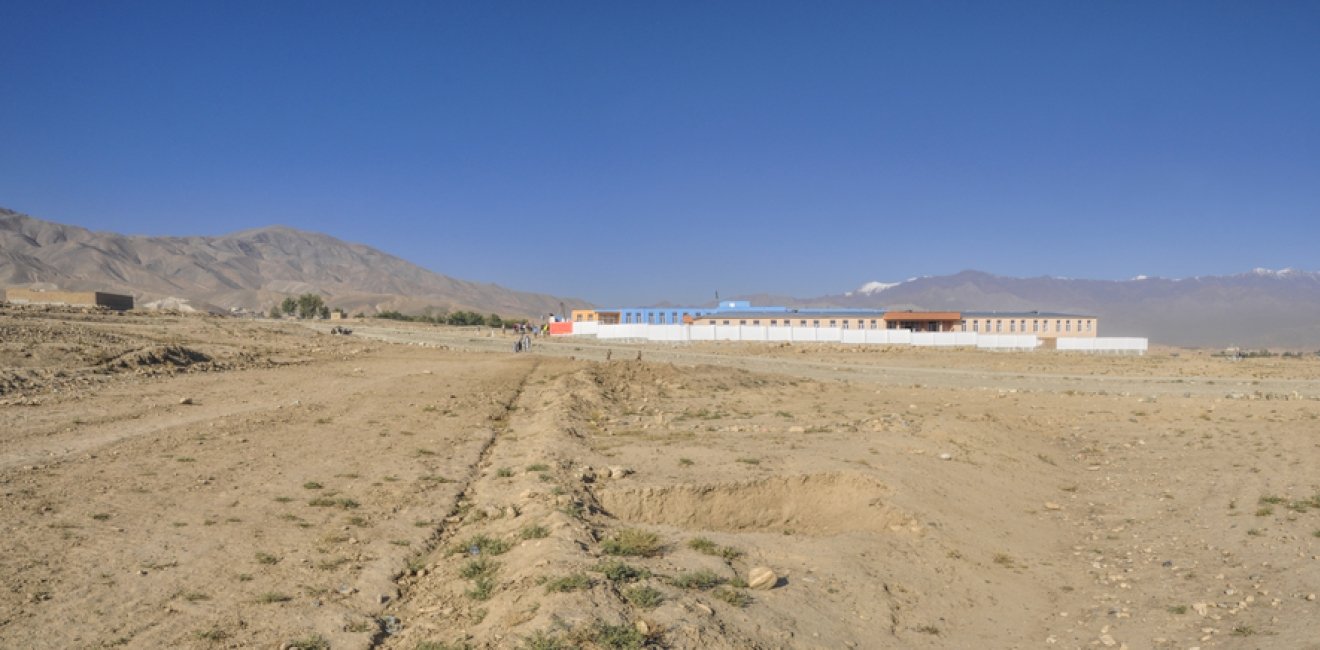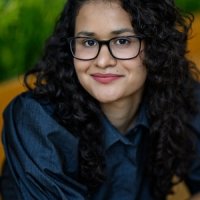On Women’s Education: Reflections on Individual Empowerment
Sola Mahfouz, co-author of Defiant Dreams, reflects on her own education journey and the power of education to empower women to make their own choices and find their individual selves.

A blog of the Middle East Women's Initiative
Sola Mahfouz, co-author of Defiant Dreams, reflects on her own education journey and the power of education to empower women to make their own choices and find their individual selves.

Education allowed me to break away from old myths and thinking, creating new possibilities. Education also gave me the intellectual arsenal to defend myself against what others claimed I was.
The oft-cited African proverb—“If you educate a man, you educate an individual, but if you educate a woman, you educate a nation”—has always left me cold. It implies that the only value of a woman’s education is to make her a better mother, especially to her sons, traditionally viewed as the nation’s future leaders.
Luckily, another voice spoke to me more intimately: “Education is like opening a window to the world,” my grandfather said. “A window that lets in the breezes of other people’s wisdom and sends out yours to them.” He had never been to school. He taught himself. I grew up listening to how he would put down his book or his pen only when he was too sick to hold them. He went on to become a renowned scholar and poet. For him, learning was a sacred act and a way to affirm his presence in this world.
When I was 14, I barely knew how to read or write in English or even do basic arithmetic. But my grandfather’s words had power—they inspired me to become self-taught. Because of that, I am now a researcher at Tufts University, developing quantum algorithms.
If I believed that my goal was to educate a family or a nation, I would never have begun studying. My mother was a professor, but the civil war and the Taliban takeover forced her to stay at home. “If her education didn’t change the nation, how could my education in a room do anything?” I would ask myself. But my grandfather’s words encouraged me and sustained my efforts. For me, education was a sacred affirmation of my own presence in the world.
My education was not just about learning facts and theories; education allowed me to break away from old myths and thinking. Education gave me the intellectual arsenal to defend myself against what others claimed I was.
As a woman living in patriarchal Afghanistan, I often doubted my own intelligence. Whenever I was stuck on a calculus or physics problem, a nagging voice in my head would tell me that I was not smart enough. While I would resist this thought, push it away, and return to my work, it never left me.
It was through reading books of anthropology—books that traced the origins of our patriarchal world and showed me how it could be otherwise—that I began to liberate my mind from patriarchy’s grip. I realized that the fault lay not in me as a woman but in the world that had shaped me. This truth gave me strength, as well as a new way to look at myself and engage with the world.
But when it comes to women, this profound value of education is downplayed or ignored altogether. The African proverb is repeated: that to educate a woman is to educate a nation. As if women were not individuals worthy of learning for their own sake. This responsibility limits our curiosity and our choices. When we define the importance of education for women in that way, we are taking the freedom to choose away from them, whether that be what fields to study or what inquiries to pursue.
By individualizing ourselves and our education there may not be immediate change but instead lasting impact on oneself. We eat food not just to survive but to enjoy. We listen to music not just to fill the silence but to feel. We learn not for the nation but to thrive personally.
Weaving together Plato’s and Aristotle’s wisdom with my own intuition, I discovered a hidden truth: we are born with a faint outline of ourselves; and by learning and reasoning, we fill in the colors and shapes of our ideal selves.
Science tells us that education changes us. When we learn something new, we do not just deposit information into our memory. New knowledge changes the very architecture of our brain. Learning protects us from the erosion of time, from the loss of who we are. Those who keep educating themselves are less likely to succumb to the darkness of dementia and Alzheimer’s disease. Learning preserves our identity.
I do not see how my education is directly changing society. I work on quantum algorithm research that will be read by few people. In literature too, my tastes are varied and unpredictable. One day, I am drawn to Albert Camus and his philosophy of the absurd; another day, Samuel Beckett. No practical values. Should I then stop? No, because all these small things enrich the world in which I live. They open new doors for understanding the world.
Education has been the target of attacks from those who fear its power and its subtle influence on individuals, enabling them to question the established truths and seek better ones. In my native country of Afghanistan—where the Taliban deprives half of the population of their right to learn—as well as in my adopted country, the United States—where book bans prevent students from learning the uncomfortable truths that lie beneath the service of American society—education is a precious and rare commodity that one must fight for. For our present is nothing but the product of our pasts. If we are hidden from it, we will never understand our present and enact change.
I sometimes wonder what I would have become without education. I had a restless curiosity, but without the right objects to direct it toward, it might have been wasted on trivial matters and idle gossip. The world might have never heard my name or my voice. I remember how learning changed me in subtle ways—even in Afghanistan. It altered the way I held myself. It gave me the courage to speak among men when women were expected to be silent and submissive. It allowed me to express my own opinions when women were supposed to defer to the authority of men.
Education has shaped my identity, my confidence. It has made me feel that my own voice mattered. And has only furthered my determination to keep learning.
The views expressed in this article are those of the author and do not express the official position of the Wilson Center.


The Wilson Center’s Middle East Program serves as a crucial resource for the policymaking community and beyond, providing analyses and research that helps inform US foreign policymaking, stimulates public debate, and expands knowledge about issues in the wider Middle East and North Africa (MENA) region. Read more


The Middle East Women's Initiative (MEWI) promotes the empowerment of women in the region through an open and inclusive dialogue with women leaders from the Middle East and continuous research. Read more



